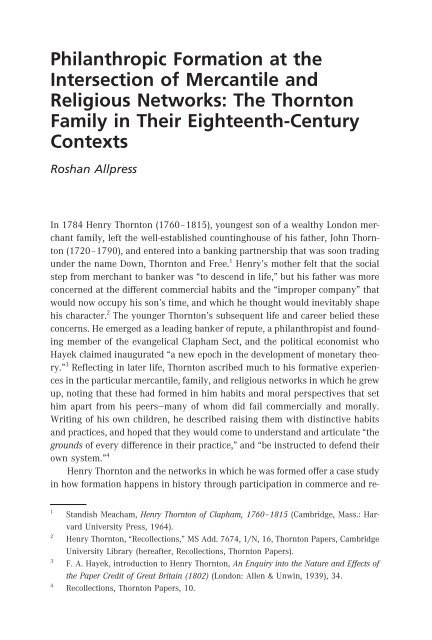Piet Naudé | Michael Welker | John Witte, Jr. (Eds.): The Impact of Political Economy (Leseprobe)
In our late modern pluralistic societies, there are tensions and complementarities between a plurality of individual and social claims and activities to shape societal life and a constructive pluralism of what is known as social systems. The latter provide normative codes and powers emanating from the areas of law, religion, the family, the market, the media, education, academic research, health care, defense and politics. A better understanding and steering of this complex division of powers is crucial for the common good and for freedom and peace. In this volume, a multi-disciplinary team of experts from Germany, Italy, Australia, the UK, the USA, and South Africa bring their conceptual, empirical and historical insights to bear in three broad sections: »The moral dimension of social systems«; »The interaction of religion, law and education with political systems«; and »The moral (mal)-formation evident in case studies on the global financial crisis and social media«.
In our late modern pluralistic societies, there are tensions and complementarities between a plurality of individual and social claims and activities to shape societal life and a constructive pluralism of what is known as social systems. The latter provide normative codes and powers emanating from the areas of law, religion, the family, the market, the media, education, academic research, health care, defense and politics. A better understanding and steering of this complex division of powers is crucial for the common good and for freedom and peace.
In this volume, a multi-disciplinary team of experts from Germany, Italy, Australia, the UK, the USA, and South Africa bring their conceptual, empirical and historical insights to bear in three broad sections: »The moral dimension of social systems«; »The interaction of religion, law and education with political systems«; and »The moral (mal)-formation evident in case studies on the global financial crisis and social media«.
You also want an ePaper? Increase the reach of your titles
YUMPU automatically turns print PDFs into web optimized ePapers that Google loves.
Philanthropic Formation at the<br />
Intersection <strong>of</strong> Mercantile and<br />
Religious Networks: <strong>The</strong> Thornton<br />
Family in <strong>The</strong>ir Eighteenth-Century<br />
Contexts<br />
Roshan Allpress<br />
In 1784 Henry Thornton (1760–1815), youngest son <strong>of</strong> awealthy London merchant<br />
family, left the well-established countinghouse <strong>of</strong> his father, <strong>John</strong> Thornton<br />
(1720–1790), and entered into abanking partnership that was soon trading<br />
under the name Down, Thornton and Free. 1 Henry’s mother felt that the social<br />
step from merchant to banker was “to descend in life,” but his father was more<br />
concerned at the different commercial habits and the “improper company” that<br />
would now occupy his son’s time, and which he thought would inevitably shape<br />
his character. 2 <strong>The</strong> younger Thornton’s subsequent life and career belied these<br />
concerns. He emerged as aleading banker <strong>of</strong> repute,aphilanthropist and founding<br />
member <strong>of</strong> the evangelical Clapham Sect, and the political economist who<br />
Hayek claimed inaugurated “a new epoch in the development <strong>of</strong> monetary theory.”<br />
3 Reflecting in later life, Thornton ascribed much to his formative experiences<br />
in the particularmercantile, family, and religious networks in which he grew<br />
up, noting that these had formed in him habits and moral perspectives that set<br />
him apart from his peers—many <strong>of</strong> whom did fail commercially and morally.<br />
Writing <strong>of</strong> his own children, he described raising them with distinctive habits<br />
and practices, and hoped that they would come to understand and articulate “the<br />
grounds <strong>of</strong> every difference in their practice,” and “be instructed to defend their<br />
own system.” 4<br />
Henry Thornton and the networks in which he was formed <strong>of</strong>fer acase study<br />
in how formation happens in history through participation in commerce and re-<br />
1<br />
2<br />
3<br />
4<br />
Standish Meacham, Henry Thornton <strong>of</strong> Clapham, 1760–1815 (Cambridge, Mass.: Harvard<br />
University Press, 1964).<br />
Henry Thornton, “Recollections,” MS Add. 7674, 1/N, 16, Thornton Papers, Cambridge<br />
University Library (hereafter, Recollections, Thornton Papers).<br />
F. A. Hayek, introduction to Henry Thornton, An Enquiry into the Nature and Effects <strong>of</strong><br />
the Paper Credit <strong>of</strong> Great Britain (1802) (London: Allen &Unwin, 1939), 34.<br />
Recollections, Thornton Papers, 10.
















